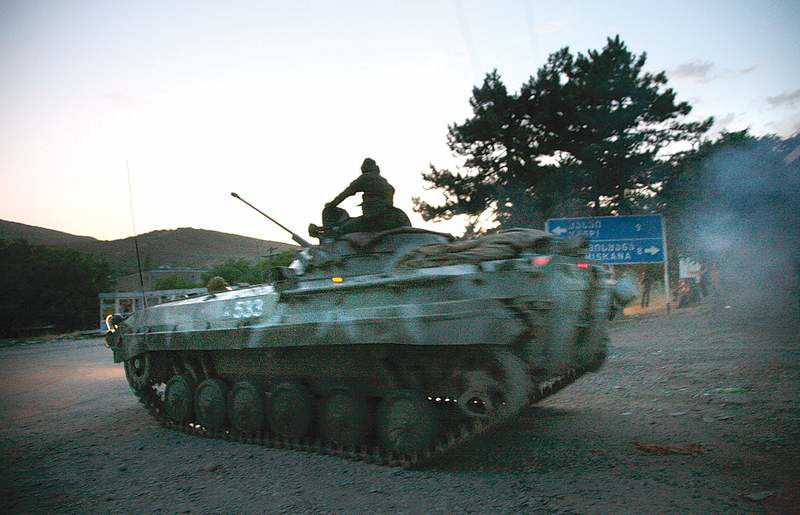Georgian leader signs truce; will Russia leave?
Published 5:00 am Saturday, August 16, 2008

- A Russian tank maneuvers its way Friday through Igoeti, near Gori, Georgia. Russian troops allowed some humanitarian supplies into the strategic city of Gori but otherwise continued their blockade.
TBILISI, Georgia — Georgia’s president grudgingly signed a truce with Russia on Friday, even as he denounced the Russians as invading barbarians and accused the West of all but encouraging them to overrun his country. A stone-faced Condoleezza Rice, standing alongside, said Russian troops must withdraw immediately from their smaller neighbor.
President Bush talked tough, too, accusing the Russians of “bullying and intimidation,” but neither he nor Rice said what the U.S. might do if Russia ignored them.
Russian President Dmitry Medvedev’s press office had no information Friday night on whether he had signed the cease-fire agreement.
As the secretary of state spoke in Tbilisi, Russian forces remained camped out just 25 miles away.
Associated Press reporters had seen a convoy of some 50 Russian army trucks and armored personnel carriers roar without warning southeast from the city of Gori on Wednesday, some shouting they were heading to Tbilisi, the Georgian capital. But they veered into a field outside the town of Igoeti and set up camp conspicuously within sight of the road. The Russians were still visible there Friday.
Even as Rice stood with Georgian President Mikhail Saakashvili in a show of solidarity, he asked, “Who invited the trouble here? Who invited this arrogance here? Who invited these innocent deaths here?”
Shaky and near tears following a difficult, nearly five-hour meeting with her, Saakashvili answered his own question: “Not only those people who perpetrate them are responsible, but also those people who failed to stop it.”
Rice let that pass, focusing instead on the demand that Moscow immediately withdraw its forces.
“With this signature by Georgia, this must take place and take place now,” she declared.
There was no immediate clue to the Russians’ intentions a week after their tanks and bombers attacked Georgia in retaliation for Georgia’s attempt to retake a disputed province by force.
Russian troops allowed some humanitarian supplies into the strategic city of Gori but otherwise continued their blockade.
The cease-fire document sets out no specific penalties or deadlines. It contains concessions to Russia that Saakashvili obviously found hard to swallow. Russia could retain peacekeeping forces in the separatist region of South Ossetia and another breakaway region, Abkhazia, and the forces would have a broader mandate in South Ossetia.
Even if Russia fully complies with the cease-fire, the Bush administration says there will be more consequences to come. Bush’s advisers are settling on penalties that would be intentionally modest and subtle, such as continuing to exclude Russia’s foreign minister from discussions among his counterparts in elite gatherings of the world’s leading economies.






